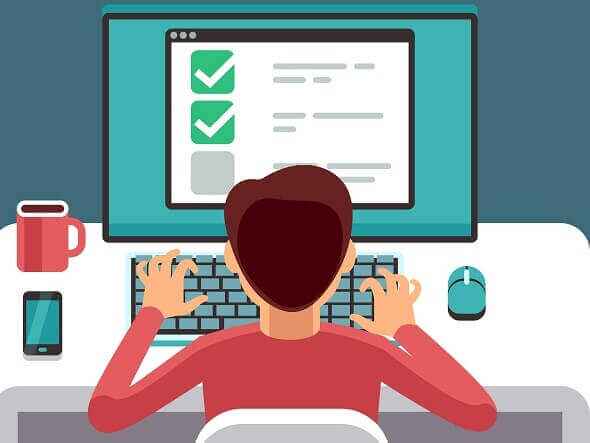The digital era has made online learning more accessible, making it easy for students to take proctored exams to assess their skills and knowledge. Online proctoring actively monitors students’ exam taking by supervising them over live video or recording their actions, effectively deterring cheating.. Nursing students enrolled in a nursing course or those seeking admission to their favorite nursing institutions should understand how to navigate and pass proctored exams. Explore How do you take a proctored exam?
This article provides a reliable guide to help you understand how to take proctored exams more effectively. The guide covers best practices, essential steps, and tips for optimal performance. Before that, who is Takemyclasspro , and how can we help you?
Pass your HESI and TEAS exams on your first try!
Takemyclasspro is the most trusted resource for nursing students, having helped over 1 million nursing candidates fulfill their dreams. We help nursing students, and candidates pass their exams on the first try through tailored preparation materials and practice exams.
We also offer a live tutoring option in weak areas and assure you a 90% guaranteed pass if you pass our practice exams with 85% and your money back if you don’t. Sign up for our premium package today and begin your nursing journey today!

How do you take proctored exams?
Understand proctored exams
Understand that proctored exams are monitored for academic integrity by authorized proctors. Responsible institutions administer the exams in various formats, including remotely via video conferencing or in person. Proctored exams are meant to ensure fairness and authenticity during assessment and prevent cheating.
Prepare for the exam.
Understand that you should be well prepared if you want to perform well and pass your proctored exam. It would be best to begin by getting familiarized with the exam’s rules, format, and requirements. One should review the syllabus and guidelines the exam administrator or instructor provides.
You should also ensure your device or computer meets the platform or exam software’s technical requirements and allocate sufficient time to practice, study, and consider the exam’s structure and content. You should also utilize resources like textbooks, practice exams, and other study materials.
Technical setup
Ensure you have a reliable technical setup that meets your exam’s requirements before beginning the exam. Ensure you have a stable internet connection to support various functionalities required for the exam, including video streaming.
Test your microphone, speakers, and webcam, ensuring they function properly. Ensure your device or computer has the most recent updates with the latest operating system and software. Close any unnecessary applications and programs that could interfere with or cause distractions with the exam.
Create an optimal testing environment.
Find a well-lit, quiet area where you can take your exams without interruptions. You should clear the space of any materials not required during the exam. Various items like phones, gaming equipment, and other electronic devices could distract you during the exam and cause you to fail.
You should inform others living with you, like roommates and family members, about your scheduled exam time and request them to minimize any disturbances. It would help if you also considered using earplugs or headphones to reduce external noise.
Exam procedures and rules
Become familiar with your exam’s procedures and rules as provided by your instructor or administrator. Ask and research about the allowed resources, specific instructions, and time limits regarding the exam’s question types and format.
Find out the consequences of violating your exam’s rules. Common consequences include penalties or disqualification. You may ask your exam administrator or instructor to clarify the instructions and ensure you understand the expectations.
During the exam
Focus on the exam’s questions once you begin your test. Ensure you manage your time properly and carefully read each question before providing an answer and pay attention to any specific requirements or instructions. Mark any challenging questions you encounter and proceed to the next question to avoid wasting time.
Avoid rushing and stay composed throughout the exam. You should notify your administrator or proctor if you encounter any issues or technical difficulties. Do this through prescribed communication methods.
After the exam
After the exam, you need to ensure that you submit all necessary materials as instructed. Research any post-exam procedures, like result notifications and feedback. Assess your performance and determine areas to improve for future exams. You should review the exam answers and solutions to get better insights into what you need to do to improve.
Want to pass your HESI and TEAS exams?
Studying for your exams and taking a proctored test is stressful and time-consuming. However, accessing engaging and interactive learning tools like videos, study guides, and quizzes can help you pass your exam on your first try. By now, How do you take a proctored exam? is well understood. Our practice questions are 90% similar to the official exam, and we guarantee you a pass on your first try. Try our premium package today.